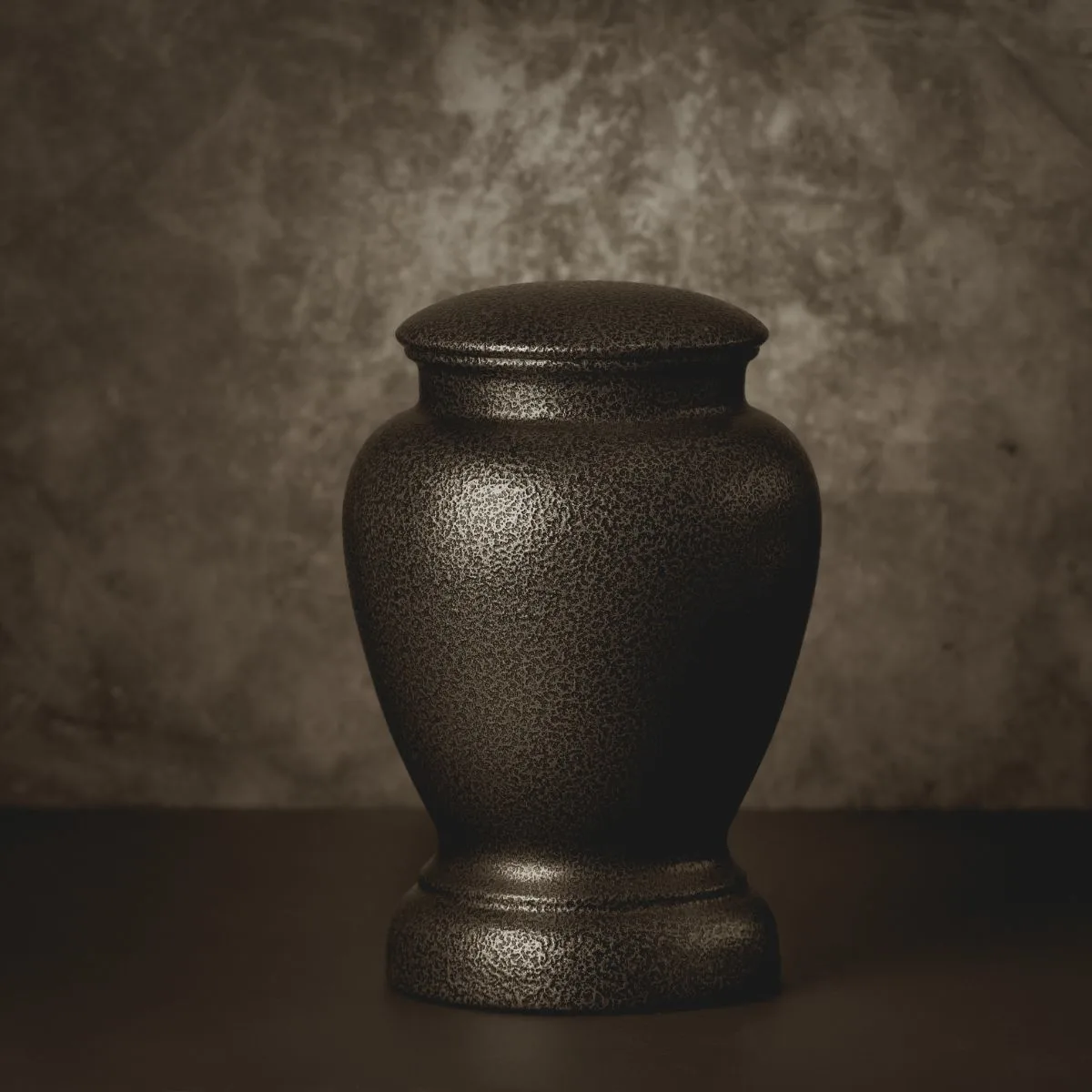What does the Bible say about cremation? Is it a sin?
Introduction
As life is a precious gift from God, upon the passing of a loved one, it becomes crucial to follow the proper rituals and customs according to one’s beliefs.
In Christianity, the funeral and burial of a deceased individual are significant events that involve the family, friends, and clergy. However, in recent times, people are moving away from traditional burials to cremation due to various reasons such as cost, convenience, and ecological concerns.
But what does the Bible say about cremation?
Is it a sin?
Can Christians be cremated?
We will talk about what the Bible has to say about cremation and how it can be used as a respectful way of honoring our departed loved ones.
We will also examine some advantages and disadvantages of choosing cremation over traditional burial.
Cremation in the Ancient World
Cremation is a practice that has existed since ancient times, well before the creation of organized religion.
In many cultures, it was believed that cremation releases the soul from the body to begin a new journey.
In the Roman Empire, at some point, cremation was widely popular, and the wealthy had elaborate tombs constructed with their ashes stored inside urns. However, cremation went out of fashion, and burial gained popularity, probably due to the risen influence of Christianity.
The Greeks saw cremation as a way of purification to release the soul from the body. Cremation was mentioned in Homer’s Illiad.
Cremation is the preferred burial practice for Buddhists.
The Hindus have been practicing cremation for over 4,000 years and believe it is an integral part of the circle of life and death.
Cremation is not accepted by Judaism. Jewish teachings indicate that the dead should be laid to rest in the earth, and burial is considered to be the most appropriate way of disposing of the dead in the Jewish faith.
Christian Perspective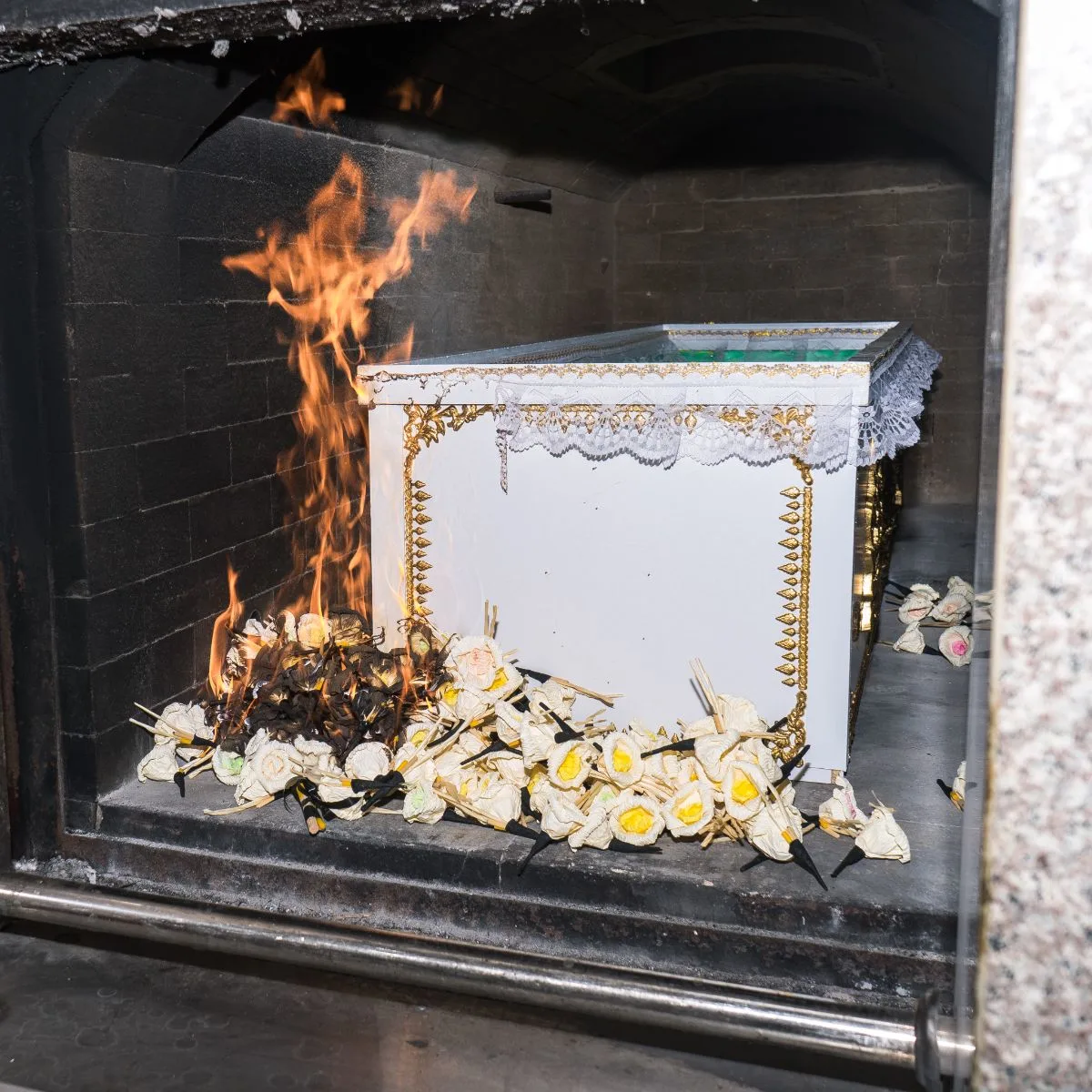
Christianity has a complex history when it comes to cremation.
In the early days of Christianity, cremation was viewed as a pagan practice and considered unacceptable.
It wasn’t until the mid-20th century (by Pope John XXIII in 1963) that the Catholic Church began to allow cremation.
Today, the Catholic Church permits cremation, but it must be done with the utmost respect for the body.
It requires that the remains be treated with the same respect as a body and not be scattered, divided, or preserved in jewelry or other keepsakes. These new guidelines were issued in 2016.
Protestant denominations vary in their perspectives on cremation – some allow it, and some abstain from the practice altogether.
The Eastern Orthodox Church forbids cremation.
Biblical perspective on cremation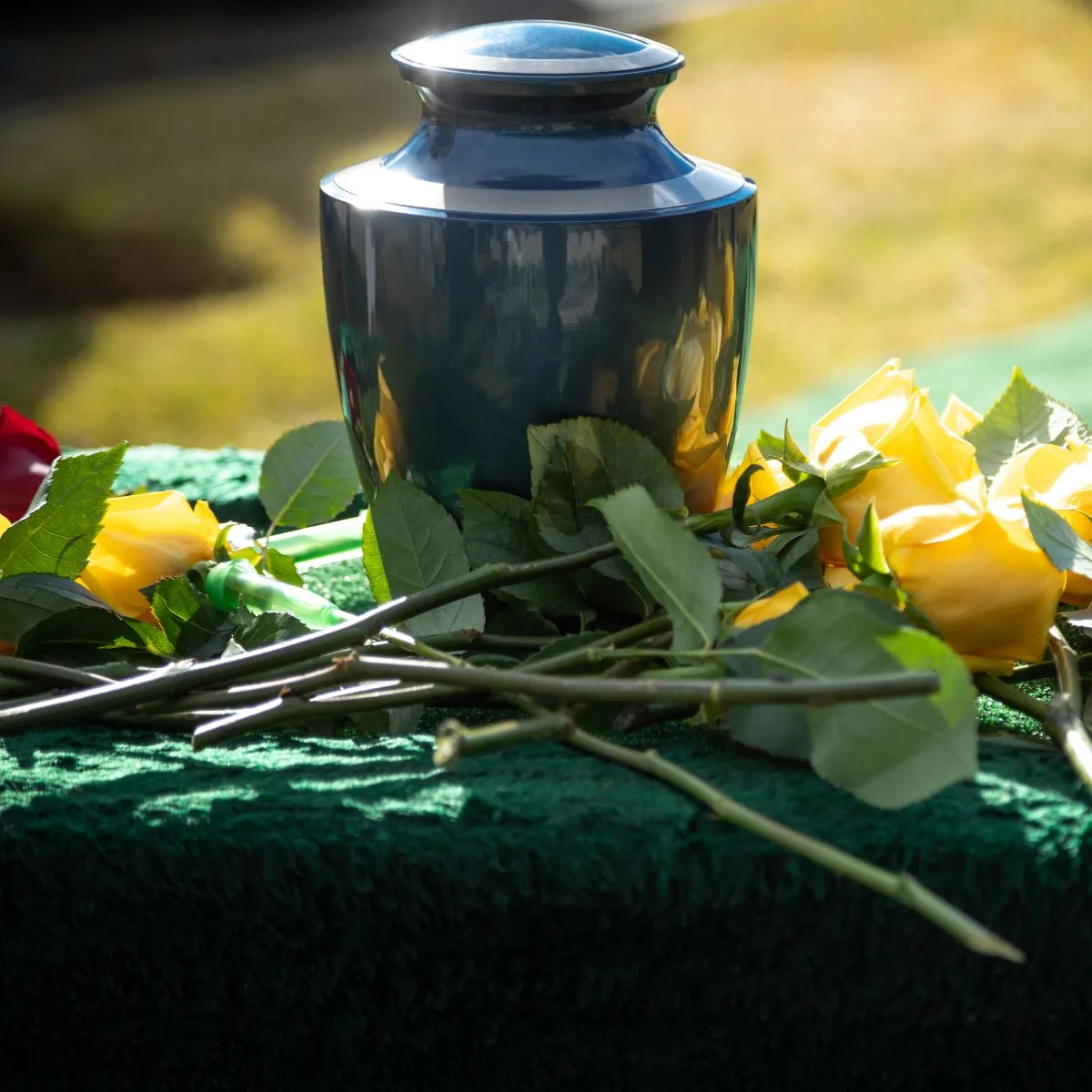
The Bible does not explicitly forbid or promote cremation, so it is ultimately up to each individual Christian to decide if they would like to be buried or cremated after death.
However, there are several biblical references that provide insight into how God views death and burial practices.
In 1 Samuel 31 (Then they took their bones and buried them beneath the tamarisk tree at Jabesh, and they fasted for seven days.), we see that Saul and his sons were burned, and then their bones were buried.
This suggests that in times of dire need, burning was seen as necessary.
In 2 Corinthians 5:1-4 Paul writes, “For we know that if the tent that is our earthly home [our body] is destroyed [by death], we have a building from God (in Heaven), a house not made with hands, eternal in the heavens.” This passage suggests that while our bodies may perish here on earth, they will live on forever in Heaven with God regardless of whether they were buried or cremated after death here on earth.
In other passages, such as Psalm 103:15-17, we see that God’s love for us is everlasting and that our bodies will eventually return to dust regardless of whether we are buried or cremated.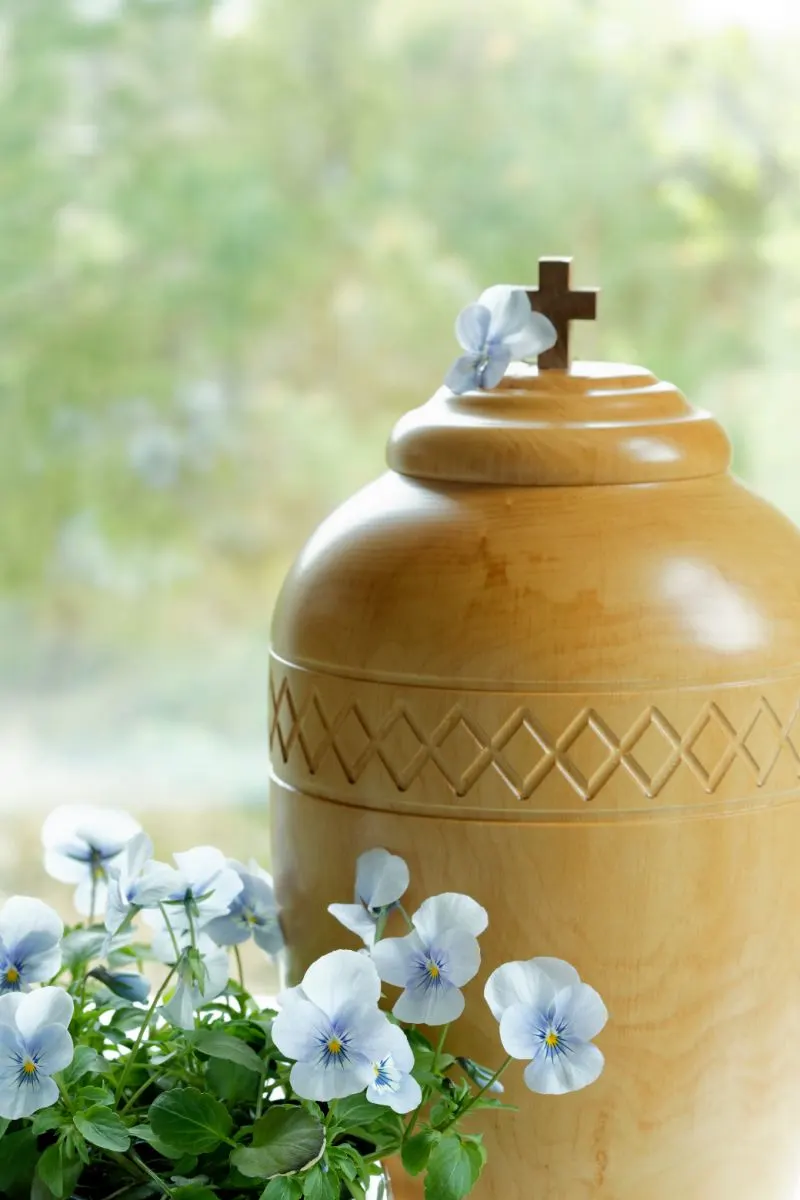
Advantages
Cremation offers several advantages over traditional burial methods.
It is usually more cost-effective than burial since there is no need for a casket or headstone.
It requires less space than traditional burials since ashes can be scattered in various places or even kept in an urn at home.
Disadvantages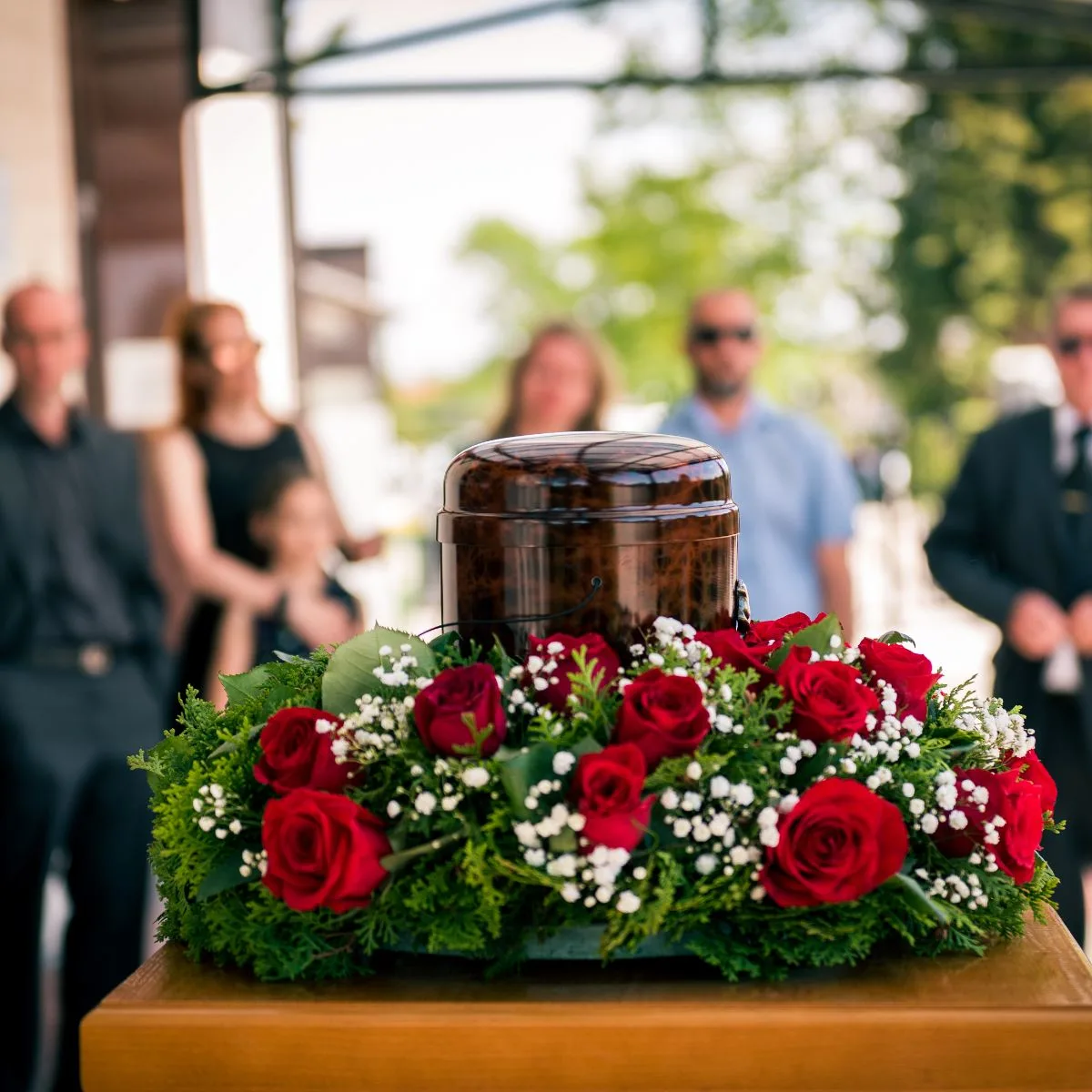
While there are several benefits associated with choosing cremation over traditional burial methods, there are also some potential drawbacks that should be considered before making this decision.
For instance, some people may find the process itself too impersonal or difficult to accept emotionally due to its finality.
Depending on where you live and your religious beliefs, you may have difficulty finding a place to scatter ashes legally or respectfully according to your faith tradition’s guidelines.
Respectful Ways To Honor A Loved One Through Cremation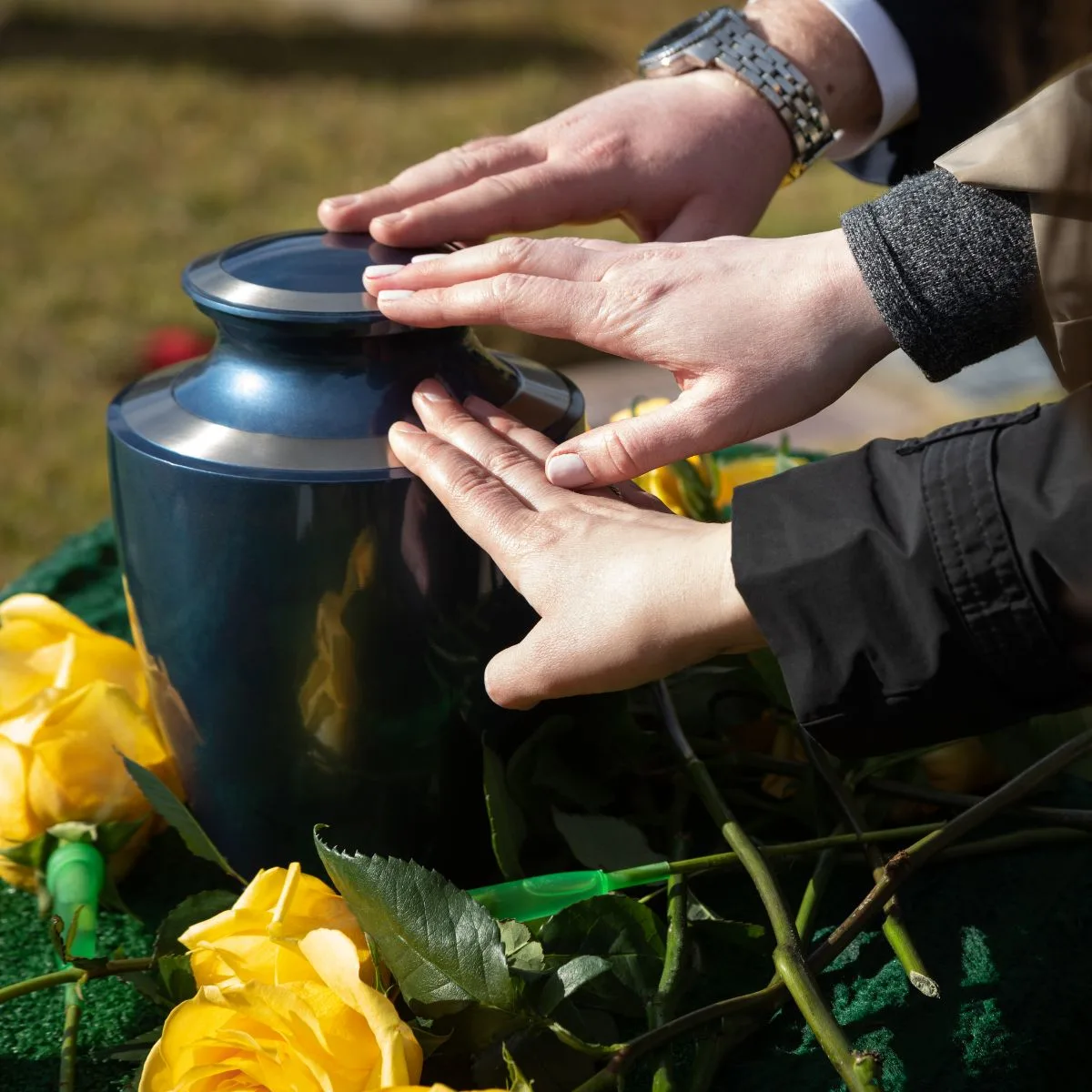
There are many respectful ways to honor a loved one who has been cremated, including scattering their ashes in meaningful places such as:
- gardens or parks;
- burying them in designated areas;
- creating memorial art pieces such as jewelry made from their ashes;
- having them turned into diamonds;
- planting trees with their ashes;
- keeping them in an urn at home;
- turning them into fireworks displays;
- donating their remains for scientific research purposes.
Final Words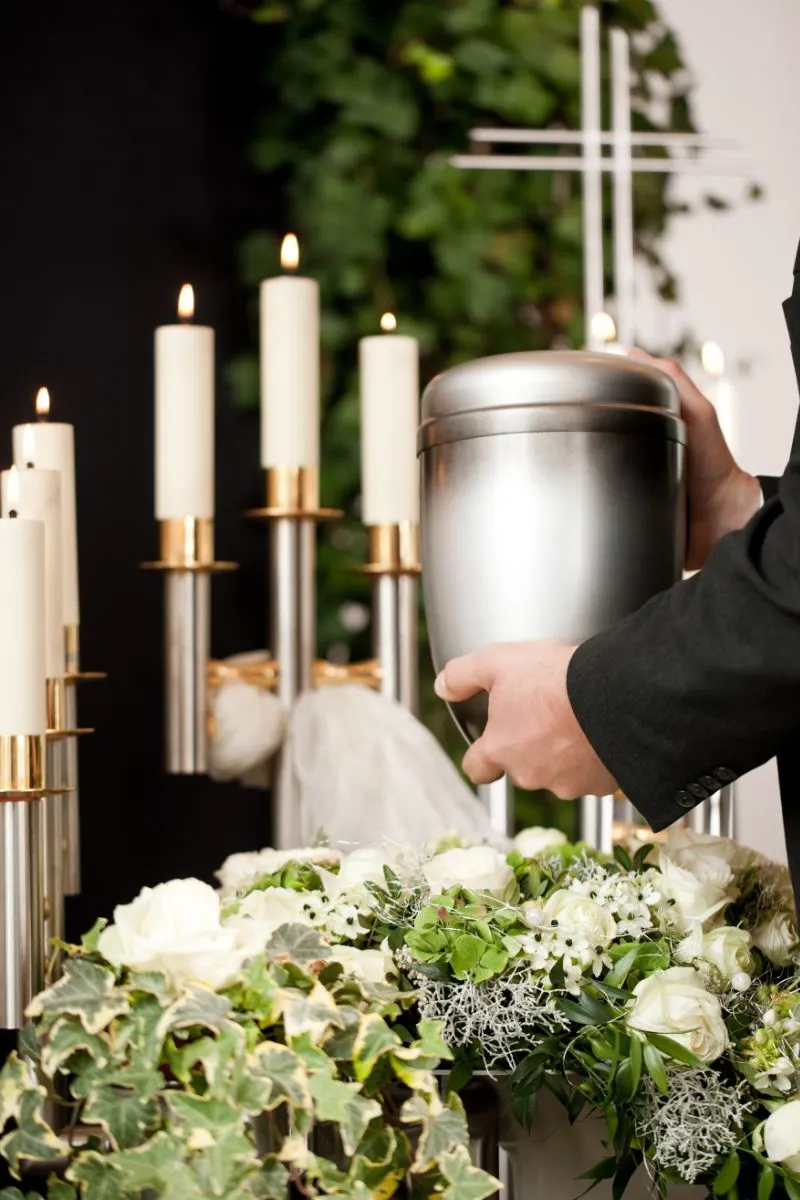
Deciding between traditional burial methods and cremation is up to each Christian based on personal preference and religious beliefs regarding death and afterlife practices outlined within scripture.
While the Bible does not explicitly forbid nor promote either option, it does provide insight into how God views death by emphasizing His everlasting love for us regardless of what happens here on earth after our physical bodies pass away from this life into eternity with Him in Heaven above.
READ THIS NEXT
Description of Angels in the Bible

